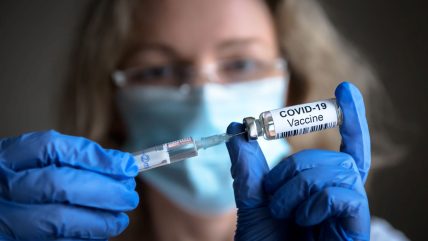

CSL and Arcturus Therapeutics have published follow-up analysis from a Phase III clinical trial indicating that ARCT-154, a self-amplifying messenger RNA (sa-mRNA) Covid-19 vaccine, offers a longer duration of immunity as a booster dose.
The study compared ARCT-154’s immunogenicity against that of the conventional mRNA Covid-19 vaccine Comirnaty one, three and six months after a booster dose.

Discover B2B Marketing That Performs
Combine business intelligence and editorial excellence to reach engaged professionals across 36 leading media platforms.
The randomised, double-blind trial assessed the vaccine’s ability to induce immunity against both the original Wuhan strain and the Omicron BA.4/5 variant.
ARCT-154 was administered at a significantly lower dose of 5μg as against Comirnaty at 30μg.
Six months after vaccination, the analysis showed that ARCT-154 induced a longer immune response and had an advantage in antibody persistence over Comirnaty.
Participants in both groups initially had similar geometric mean titers (GMTs) of surrogate virus-neutralising antibodies against the Wuhan-Hu-1 strain.

US Tariffs are shifting - will you react or anticipate?
Don’t let policy changes catch you off guard. Stay proactive with real-time data and expert analysis.
By GlobalDataOne month after receiving the booster, the ARCT-154 arm showed a higher immune response with a GMT of 5,390 versus the Comirnaty group’s GMT of 3,738, resulting in a GMT ratio of 1.44.
By day 91, titers were equal to or greater than those on day 29 in 205 of the 369 ARCT-154 recipients, but only in 108 of the 356 Comirnaty recipients.
The different rates of antibody waning meant that by day 181, the GMTs of ARCT-154 recipients were 4,119, maintaining a GMT ratio of 2.21 between the vaccine groups.
A similar pattern of superior immunogenicity and a slower decline in neutralising antibodies following the ARCT-154 vaccine was also observed for the Omicron BA.4/5 variant.
CSL Vaccines Innovation Unit senior vice-president Jonathan Edelman said: “These results further support sa-mRNA’s differentiating attribute to provide prolonged protection against Covid-19 at lower doses.
“Protecting the global public from viral respiratory diseases remains a top priority for us, and we look forward to continuing to collect and share data at the twelve-month post-booster mark.”
Cell & Gene therapy coverage on Clinical Trials Arena is supported by Cytiva.
Editorial content is independently produced and follows the highest standards of journalistic integrity. Topic sponsors are not involved in the creation of editorial content.





